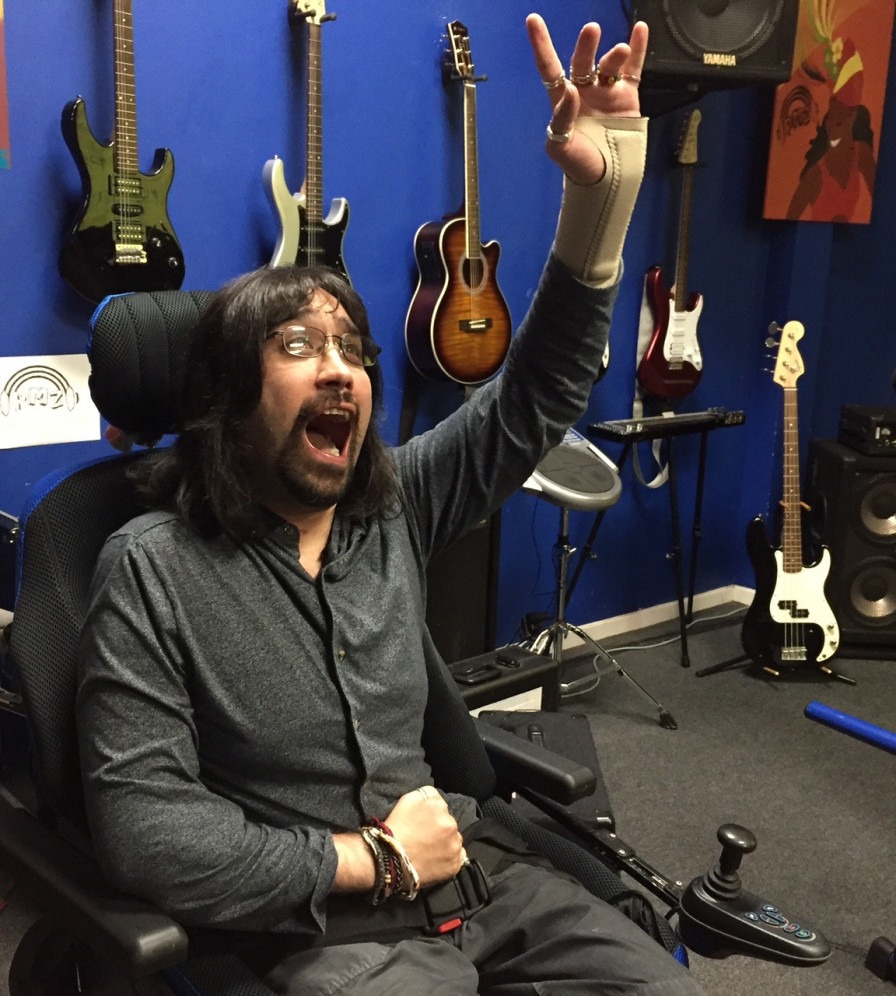New research shows music improves relationships

New research shows that music boosts relationships and social bonding leading to improved wellbeing and stronger communities. Plymouth Music Zone's new independent evaluation “Reaching Out: The impact of music-making on individual and community development in Plymouth” (BOP Consulting, May, 2016) comes within days of a report published as part of Mental Health Awareness week by the Mental Health Foundation that said people's wellbeing is being adversely affected by not investing more time in relationships.
New research shows the work of Plymouth Music Zone has a significant impact on both individual and community development within the city. The music charity uses the power of music to tackle loneliness and isolation by reaching out to some of the most vulnerable and marginalised people in the community. It includes working with people living with mental health issues, ill health or disability as well as those who may lack opportunities to make vital connections with others.
Among the findings, the evaluation report shows increases in people’s health and emotional wellbeing with 91% saying music activities made them feel more relaxed, less stressed and reporting a sense of feeling ‘alive’ with ‘moments of joy and respite’. 97% of participants said the activities helped them meet people with similar interests and around 83% said the sessions allowed them “to get out of the house more”.
The Devonport based charity commissioned evaluators from the international research firm, BOP Consulting, to look at the impact of two of its main programmes of work that have been operating since 2012 and are nearing completion. The music-making activities involved working with over 50 partner organisations to help reach out to over 1500 people across Plymouth. The two programmes were funded by the Big Lottery Fund and Lloyds Bank Foundation and sought to use music as a tool to improve emotional wellbeing and reduce loneliness and isolation within those communities facing a whole range of complex and multiple challenges.
As well as showing strong improvements in people’s musical skills and how people felt about themselves and others, the results also found a wider ‘ripple effect’ on the community creating what researchers call ‘social capital’. The report shows the music activities led to the creation of “at least 10 new meaningful connections” for every person engaged amounting to what could be over 15,000 new social connections made across the city during the past 3 years as a result of the two programmes.
Plymouth Music Zone’s Executive Director, Debbie Geraghty, says it’s so important to understand what works so the charity can do more of the right things. “It’s hugely valuable to see that Plymouth Music Zone’s work not only improves people’s musicality and how they feel about themselves and others but it also creates better relationships, stronger communities and improvements in the quality of people’s lives. Although we set out with the express aim of helping people feel less isolated in their lives, it’s immensely heartening to see in black and white that it’s having such a valuable knock on effect. If people need any more evidence for how music can strengthen the health of our communities then this evaluation is certainly more than a good bedtime read. It wakes you up to some very tangible possibilities of what could happen if we invested even more in this kind of preventative and transformative work.”
The authors of the report, “Reaching Out: The impact of music-making on individual and community development in Plymouth”, also highlight the importance of the high quality professional practice of the Music Leaders that has been shown as central to creating such positive results. The report goes on to recommend Plymouth Music Zone scales up its work in these areas and shares its inclusive approach both nationally and internationally to create wider and deeper impact.
One of the report authors, Dr Douglas Lonie, says: “One of the distinctive features of Plymouth Music Zone’s work is the approach of its staff and practitioners that so firmly focuses on the strengths and potential of each and every one of the individuals they work with. Using such a ‘person-centred approach’ that has the individual as the starting point means the charity has the ability to extend its work to a very diverse range of people. That is a clear strength if they wish to contribute to shared agendas in health and social care and in the support of people with complex needs. This approach across diverse groups of people makes Plymouth Music Zone fairly unusual and others could benefit greatly if they were to share it more widely. It’s important that those organisations using creative and cultural approaches to improve people’s health and the wellbeing of communities are recognised.”
Plymouth Music Zone has been attracting wider attention recently having won 5 regional and national awards in the past 2 years alone recognising the innovative way it works with over 1000 people a week delivering around 50 music activities across the city. The charity is also one of only 8 national Arts Council funded research projects alongside other organisations including the Royal Shakespeare Company and the Royal College of Music. Its heightened profile also recently attracted the UK’s leading specialist in music and health research, Professor Norma Daykin. This latest independent evaluation also recommends deepening its research links even further to understand and share the learning around the transformative effect of its diverse work and its wider impact on relationships and communities.
Link to evaluation report “Reaching Out: The impact of music-making on individual and community development in Plymouth” (BOP Consulting, May, 2016) http://bit.ly/1WCmHtu
Link to Plymouth Music Zone's News Page: http://bit.ly/1R82Yt9
Link to Media release: http://bit.ly/1THxIDh
Link to Mental Health Foundation's study: http://huff.to/1V5Ofpy
